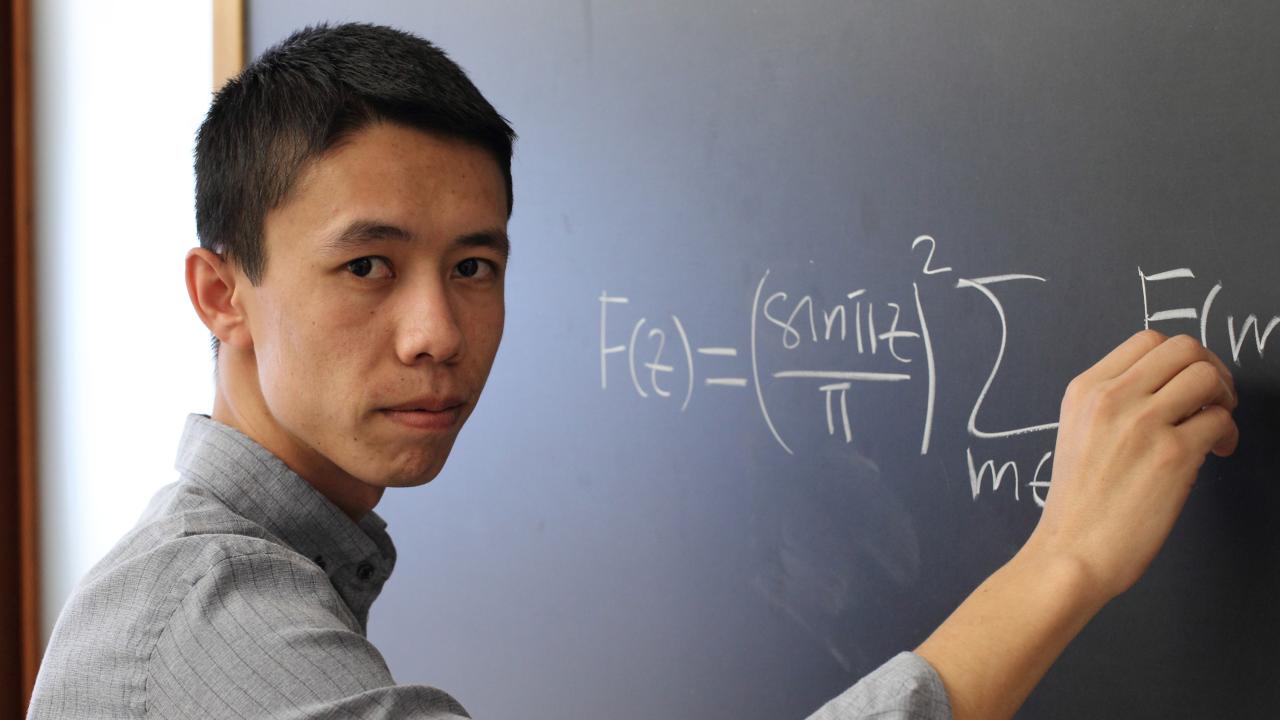
Abdilaziz Komilov’s interest in maths started before his university time, back when he was still in high school. “My interest was mainly in maths olympics,” he explains. “I studied maths to prepare for the competition. There were many interesting problems, but we didn’t really know what we were doing. We didn’t know what maths was.” When the time came to enroll as a student at Samarkand State University, in his home country, Uzbekistan, he was advised to get a degree in financial maths. “But I didn’t like it very much,” he says, “so I went for pure maths.”
In his bachelor’s degree, Komilov mostly learned about analysis, working under the supervision of Isroil Ikromov, a professor at Samarkand State University specializing in harmonic analysis. “During university, I started to understand what maths was really about. It is about abstraction, about conceptual understanding, not just about calculations, like most people think,” he emphasizes. Towards the end of his degree, he sought advice on what his next academic steps should be. He talked to Toshpulatov Gayrat, a former Diploma student who is now a postdoc at the University of Münster, Germany. It was Gayrat that pointed him to ICTP’s Postgraduate Diploma Programme, an advice that was strongly backed by Ikromov.
“The Diploma Programme is very intense,” he explains, “I had to learn about subjects like algebra and topology, that I didn’t study in my bachelor’s.” During his time in Trieste, Komilov thoroughly enjoyed the environment, and being surrounded by peers working on the same topics. “At lunch and at dinner, you can speak to professors, to PhD students, you can discuss maths at all times. You can ask questions about the subjects you don’t know, and they will explain them to you.” The experience was not without challenges: the intensity of the programme and the amount of study material meant that there was little time left for other activities. Something that didn’t scare him. “It’s like a black hole: if you learn about something, you want to know more.”
Komilov is now working with ICTP research scientist Emanuel Carneiro for his Diploma project. He is exploring approximation theory and the problem of boundedness of maximal operators, a topic that he started exploring during his undergraduate studies at Samarkand State University, under the supervision of Ikromov. His interests are mostly motivated by his background, but “there is nothing in maths that is not interesting,” he points out.
As far as future plans go, Komilov has secured a PhD position in SISSA’s Mathematical Analysis group. By the time he had to sit through the written and oral exams for it, he had already been offered another position elsewhere. This meant that he could focus on the application procedure fully, without stressing about what would happen if he didn’t get the position. “Since I already had another offer, I didn’t have any pressure. And I was able to do my best.”
















